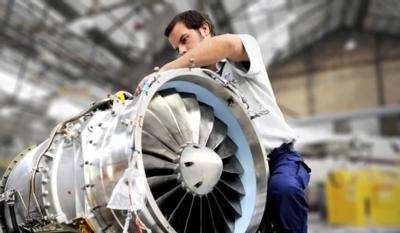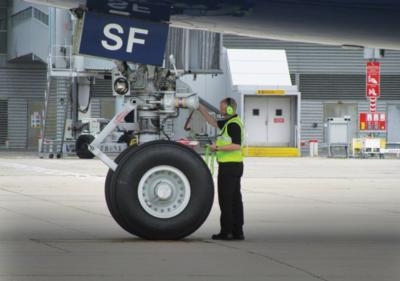Sun, Jun 19, 2016
Courses Developed By Academia And Industry Offer A Balance Of Theoretical And Hands-On Training
AeroAcademy, the University of South Wales (USW) and the Aviation Skills Partnership have created a Professional Aviation Engineering Practice degree level course. With lessons commencing in September 2016, the course is available as a three-year BSc (Hons) Degree or a two-year Foundation Degree.

Both courses are tailored to provide graduates with excellent career opportunities in aerospace and are based on an Aviation Skills Partnership framework and around the European Aviation Safety Agency (EASA) Category B licence. Students will be taught at AeroAcademy, which is located close to Cambridge Airport and the headquarters of Marshall Aerospace and Defence Group; one of the world’s largest independent aerospace companies.
Ian Peart, General Manager of AeroAcademy, comments: “Our collaboration with the Aviation Skills Partnership and the University of South Wales has produced two extremely fit-for-purpose degree courses, leading to excellent career opportunities for the successful graduates - as well as feeding qualified, enthusiastic engineers into the aerospace industry.”

The first two years of training/education are common to both courses. Year 1 provides the basic knowledge of the principles behind and the practical methods for performing essential engineering tasks; and provides an introduction to the use of design tools, manufacturing techniques and health and safety protocols. Year 2 will present students with the option of pursuing either an EASA Type-B1 licence (which focuses on the mechanical engineering aspects of aircraft design) or a Type–B2 licence (which focuses on the avionics systems used in aircraft design).
Year 3 – for the BSc (Hons) Degree only – covers a range of topics around the aerospace business environment. Students will, for example, learn about a variety of aeronautical engineering issues, including planning, operations, health and safety, regulations and management.
(Image provided with Marshall Aerospace and Defense Group news release)
More News
NonApproach Control Tower Authorizes aircraft to land or takeoff at the airport controlled by the tower or to transit the Class D airspace. The primary function of a nonapproach co>[...]
“This shutdown inflicted real damage. Beyond disrupting operations and adding risk into the aviation system… it hindered essential career growth opportunities and stal>[...]
Aero Linx: The Mooney Mite Site Dedicated to the Mooney M-18 Mite, "The Most Personal Airplane," and to supporting Mite owners everywhere. The Mooney M-18 Mite is a single-place, l>[...]
Pilot’s Improper Installation Of The Control Stick Pushrod Assemblies, Which Resulted In Separation Of The Left Pushrod And A Total Loss Of Roll Control Analysis: While retur>[...]
We're Everywhere... Thanks To You! Even with the vast resources and incredibly far-reaching scope of the Aero-News Network, every now and then a story that should be reported on sl>[...]
 ANN's Daily Aero-Term (11.16.25): NonApproach Control Tower
ANN's Daily Aero-Term (11.16.25): NonApproach Control Tower Aero-News: Quote of the Day (11.16.25)
Aero-News: Quote of the Day (11.16.25) ANN's Daily Aero-Linx (11.16.25)
ANN's Daily Aero-Linx (11.16.25) NTSB Final Report: Vans Aircraft Inc RV-12
NTSB Final Report: Vans Aircraft Inc RV-12 ANN FAQ: How Do I Become A News Spy?
ANN FAQ: How Do I Become A News Spy?




